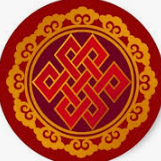Religion in Thailand
-
Recently Browsing 0 members
- No registered users viewing this page.
-
Topics
-
Popular Contributors
-
Latest posts...
-
22
Trump Privately Concedes Putin Unwilling to End Ukraine War
Easy peasy .... anyone MAGAn worth their salt knows you can't trust any channel other than Faux.... and of course Faux hasn't bothered to report Trump's retreat- 1
-

-
43
Finally a MAGA point of view i can relate to.
Yet the Democrats are now the party of the rich. Harris outspent Trump by more than two to one. -
50
Your favourite bars in Nana, and why. (Positive only)
I wonder if Rainbow has the same mama-san that I knew from one of them(Rainbow clubs) back in the 01's-09's. -
43
Finally a MAGA point of view i can relate to.
The "they are all the same" narrative well and truly blown out of the water. -
22
Trump Privately Concedes Putin Unwilling to End Ukraine War
unless you were there and heard it i call BS -
43
Finally a MAGA point of view i can relate to.
You could make that argument I suppose. But my guess is loads of people hate the MAGA team just because of the whiff of money surrounding that administration. Regardless of what they do. A lot of people just resent and do not trust very wealthy people.
-
-
Popular in The Pub
-







.thumb.jpeg.d2d19a66404642fd9ff62d6262fd153e.jpeg)







Recommended Posts
Create an account or sign in to comment
You need to be a member in order to leave a comment
Create an account
Sign up for a new account in our community. It's easy!
Register a new accountSign in
Already have an account? Sign in here.
Sign In Now